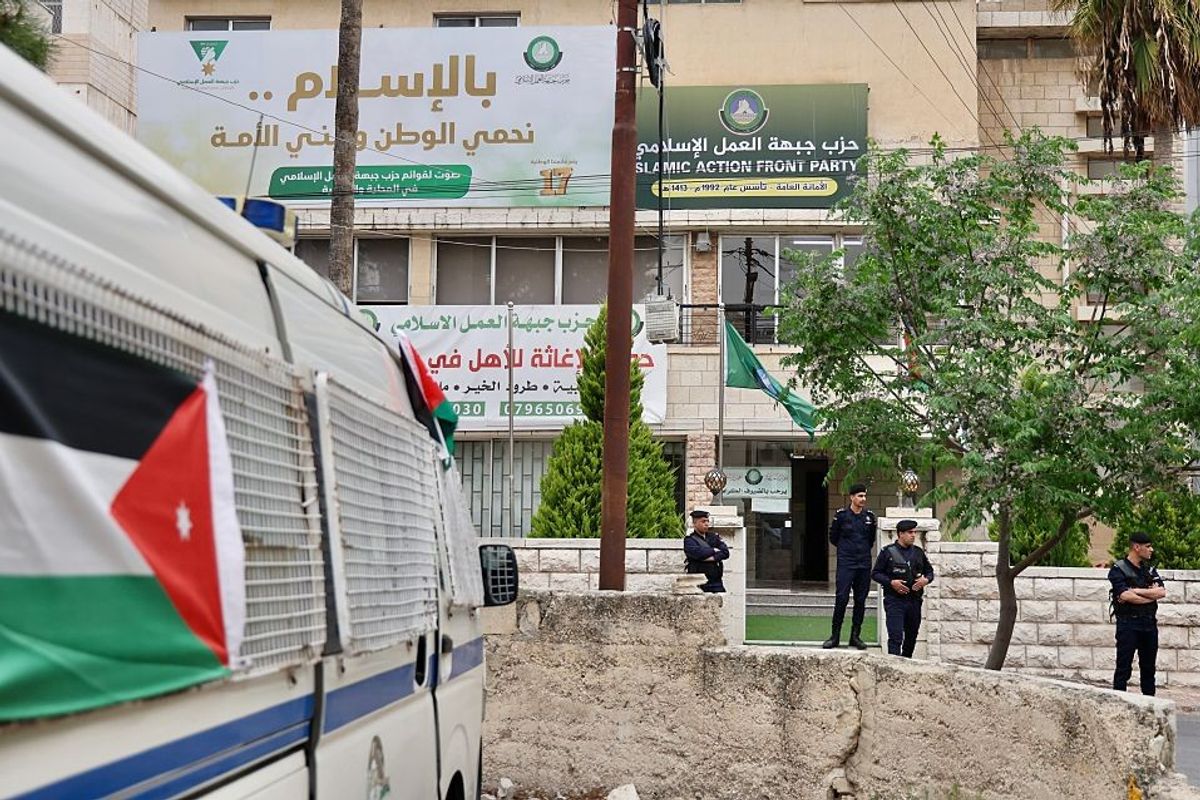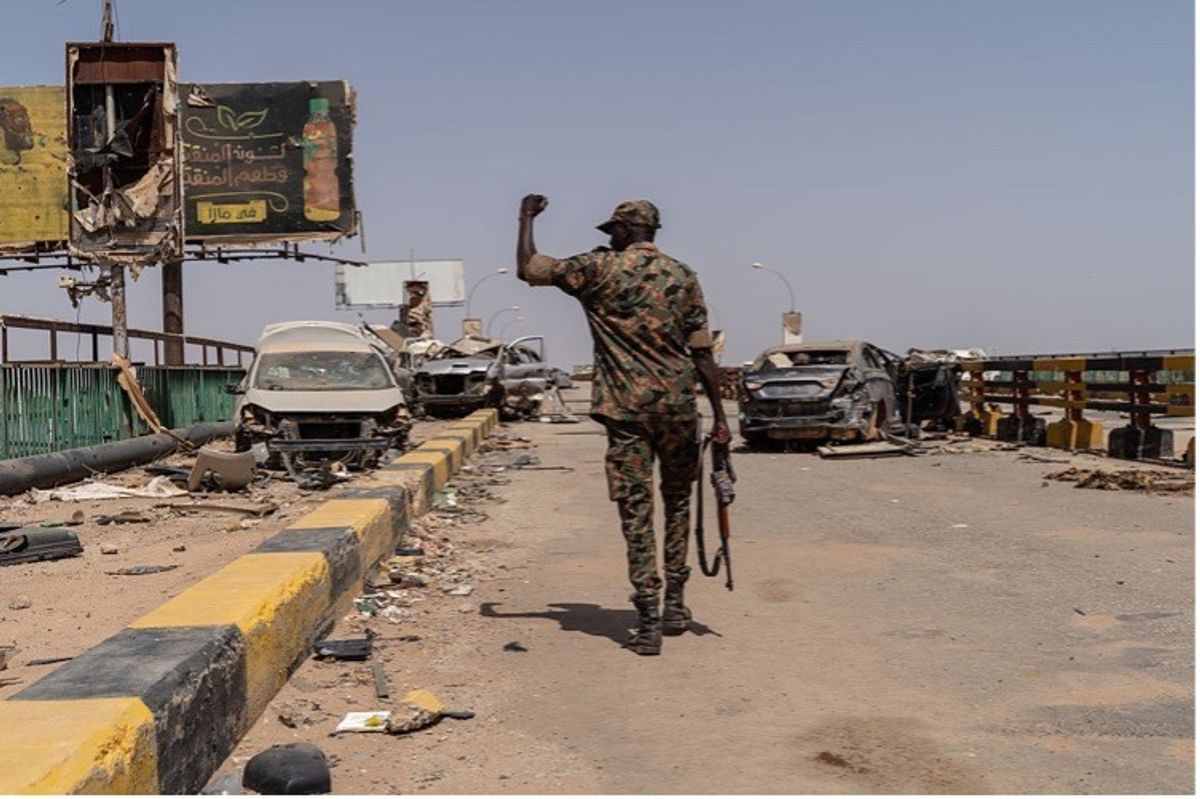EXPERT Q&A — The major news headlines of the day often focus on Ukraine, the Middle East and China, rarely mentioning Jama’at Nusrat al-Islam wal-Muslimin (JNIM) — a terrorist group linked to al-Qaeda and rapidly gaining strength in Africa.
The Cipher Brief spoke with Dr. Levi West, a counterterrorism expert who is a Research Fellow at the Australian National University, about the real threat JNIM poses and why it seems to have fallen off the radar. Our conversation has been edited for length and clarity.
The Cipher Brief: How serious is the threat posed by the JNIM coalition of groups in West Africa?
Dr. West: This question hinges on whether we assess that JNIM is prioritizing the "near enemy," and therefore is primarily concerned with prosecuting a jihadist agenda within Mali and the region, or whether they are committed to the "far enemy," and therefore hold ambitions beyond the Sahel region. Given the failures of the global jihadist project, it is likely that JNIM will draw lessons from HTS in Syria, and the Taliban in Afghanistan, where both those organizations have achieved greater power and “success” by subscribing to a localized jihadist agenda.
The Cipher Brief: JNIM are often described as one of the post powerful global affiliates of Al Qaeda. How should we understand that in terms of the threat?
Dr. West: While JNIM is likely the most powerful al-Qaeda affiliate, that is a relative term—al-Qaeda does not possess the kind of strong and diverse affiliate network it did when groups such as al-Qaeda in the Arabian Peninsula, under the leadership of Anwar al-Awlaki, were both powerful in the context of the Yemeni civil war, but also projected power into the West through direct operations as well as the infamous Inspire publication and associated English language propaganda. Al-Qaeda, both operationally, and in propaganda terms, are a greatly diminished movement compared to their peak. As such, being the most powerful al-Qaeda affiliate is not the same description it once was.
The Cipher Brief Threat Conference is happening October 19-22 in Sea Island, GA. The world's leading minds on national security from both the public and private sectors will be there. Will you? Apply for a seat at the table today.
The Cipher Brief: What do you think the group's aim is?
Dr. West: It would appear—and even an all-source assessment would still have caveats on this—that JNIM is really prioritizing the local jihad as their objective. This means the implementation, in their zones of support, of Salafi-Jihadist ideology as the foundation of their governance approach. Much like HTS in Syria, and the Taliban in Afghanistan, this means minority, deeply conservative, and militant interpretations of Islam as the system of governance and the basis of laws. That being said, whenever local insurgencies affiliate or pledge to a global enterprise, be it al-Qaeda or Islamic State, they necessarily have to fuse both the global ideology and the localized agenda of the insurgency, so the aims that draw from the global agenda of al-Qaeda will be integrated with the local agenda that birthed the insurgency to begin with.
The Cipher Brief: At the moment the JNIM appear to threaten Mali, Niger, Burkina Faso - and perhaps Benin and Mauritania. It’s a huge area; might their reach grow even further?
Dr. West: In addition to the governance, development, environmental, and other non-traditional challenges that confront the region, Africa is additionally a front line in strategic competition. The reprioritization of counter terrorism within U.S. and Western security policy (regardless of any assessment of that) means there is greater scope for groups such as these to expand and evolve. The counter terrorism effort simply doesn't have the resources and capability it once did, either as a U.S. unilateral capability, or as a collective effort by both Western and local forces. Additionally, the presence of other major powers, particularly China and Russia, adds a layer of complexity and opportunity for groups such as JNIM. The Sahel War, which has raged since around 2011, has resulted in the region being referred to as the "coup belt," a governance characteristic that is attractive to external actors looking to exert influence in the region.
The Cipher Brief: Why is it in this part of the world that jihadists appear to be making gains at the moment?
Dr. West: Africa has long sat outside the strategic view of Washington, Brussels, and much of the West. As a result, the region has rarely been considered as globally consequential as the Middle East. This is for a variety of reasons, but the long history of America's War for the Middle East means that U.S. security policy, much as it has been since October 7, 2023, is repeatedly drawn back to that region. One would hope that the U.S. and its Western allies would take measures to prevent the emergence of Jihadist dominated areas of contingent territory. However, there seems to be limited efforts being made to disrupt this from occurring.
Everyone needs a good nightcap. Ours happens to come in the form of a M-F newsletter that keeps you up to speed on national security. Sign up today.
The Cipher Brief: How worried should the rest of the world be about this?
Dr. West: The threat to international security from a group such as JNIM fundamentally depends on their ambitions. At this stage, and I say this not as a JNIM expert by any means, it would appear that their primary objective is local, arguably regional, but not global. From a strictly security perspective, the threat is limited. If the assessment includes human rights of the populations under their control, governance issues, and the vulnerabilities it creates vis-a-vis strategic competition, then the assessment is worse. JNIM are detrimental to many things in Mali and the region, but their threat to international security is relatively limited.
The Cipher Brief: What can and should the United States be doing to help?
Dr. West: The U.S. and its allies need to recalibrate how counter terrorism, and terrorism more broadly, is conceptualized. Terrorism will remain an international security threat, regardless of whether we prioritize it. Terrorism was a fundamental component of the Cold War, with both the Soviets and the Chinese providing support to a wide variety of insurgencies and terrorist organizations. Recognizing terrorism as an element of strategic competition and subversion via extremist ideologies and organizations would be a good start.
Regarding JNIM specifically, partnering with local forces, to the extent that this is viable, is the conventional approach. It is resource intensive, carries risk, and doesn't always work, but it is the best option if the threat warrants intervention. The key assessment is whether JNIM warrants U.S. attention. We have the playbook on how to respond — it is a question of whether that is necessary.
The Cipher Brief: Why is it (or is it not) in the U.S. interest to help?
Dr. West: The primary justification for engagement in the region is due to the growing influence of the U.S.' two primary strategic adversaries, Russia and China. Both the actors are highly active and influential in the region and cross Africa. The U.S., from an external perspective, is facing a diversity of challenges. The domestic polarization and governance issues are a significant hindrance to policy coherence and continuity, as are the risks of the politicization of intelligence. Additionally, the war in Ukraine, and support to Israel in their war in Gaza and beyond, are drawing significant resources from the U.S. national security apparatus. Counter terrorism, whether done conventionally, or reimagined, remains a vital and effective vehicle for engagement with the region.
Opinions expressed are those of the author and do not represent the views or opinions of The Cipher Brief.
The Cipher Brief is committed to publishing a range of perspectives on national security issues submitted by deeply experienced national security professionals.
Have a perspective to share based on your experience in the national security field? Send it to Editor@thecipherbrief.com for publication consideration.
Read more expert-driven national security insights, perspective and analysis in The Cipher Brief














